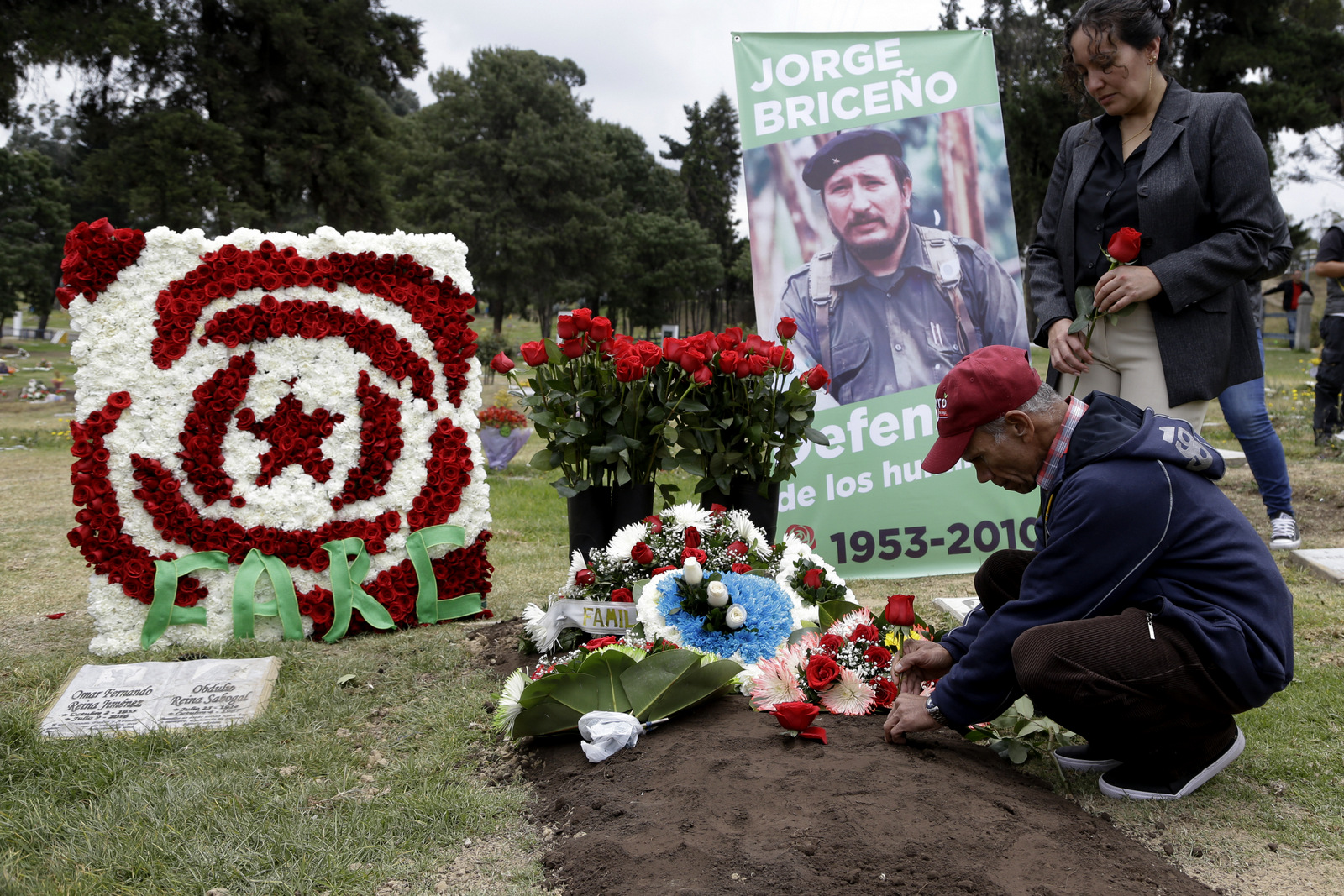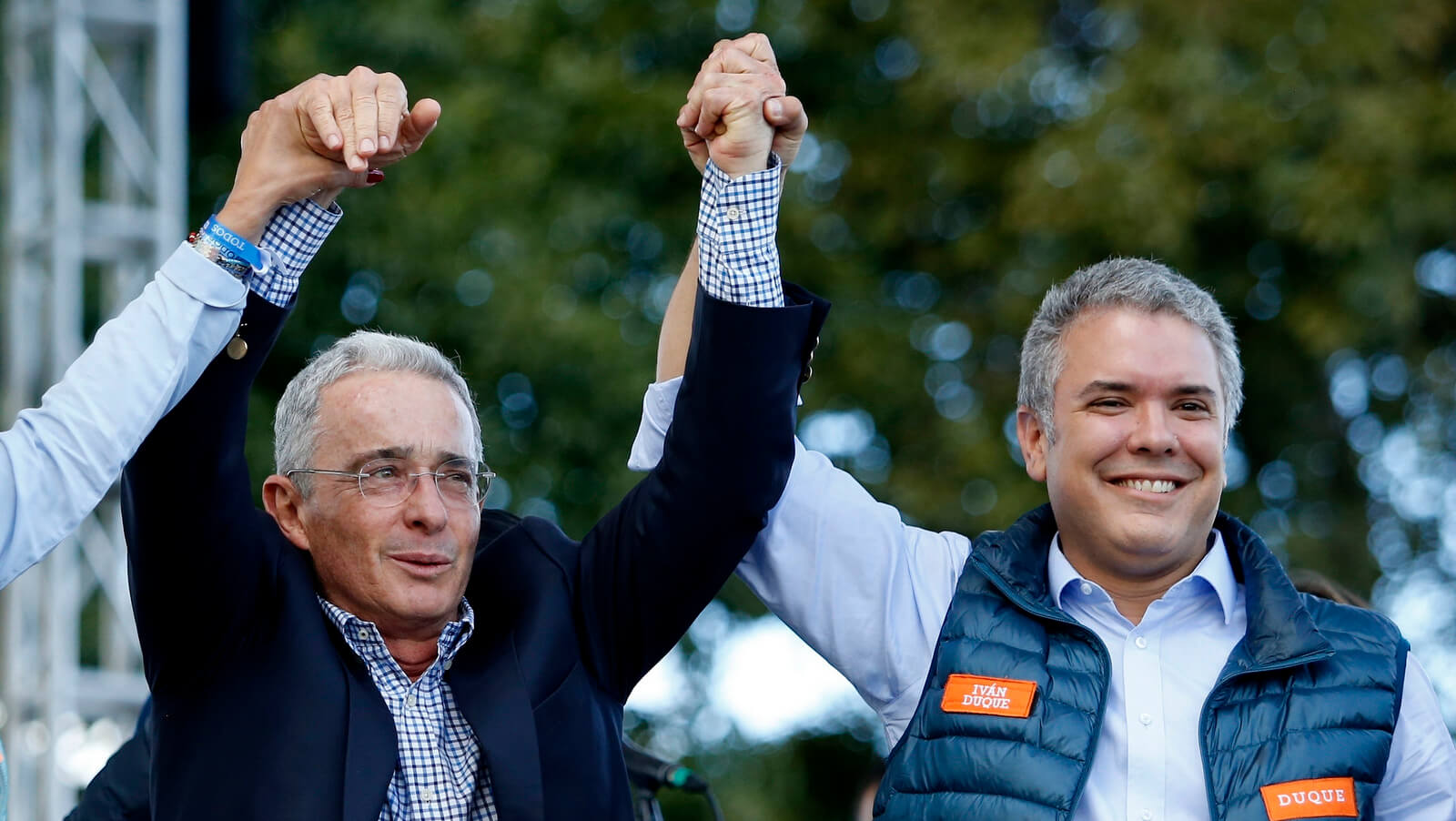BOGOTA, COLOMBIA – Leaked reports from the Colombian Armed Forces have alleged that scattered groups of dissident former members of the dissolved Revolutionary Armed Forces of Colombia – People’s Army (FARC-EP) plan to hold a guerilla conference and formally unite as a large new guerilla force in the country’s lawless border regions and rural countryside.
The publication of the military leak is one of several signals that augur poorly for the continuation of the Colombian peace process, which right-wing President-elect Ivan Duque had long lambasted for its alleged failure to punish the leftist former guerillas.
The reports, carried by the weekly Colombian magazine Semana, allege that the three commanders of the so-called “1st Front,” active in the southern and central rural zones of Colombia, plan to fuse 11 disparate groups of ex-FARC combatants. Together these groups would amount to anywhere between 1,300 to 4,000 members, according to various sources.
The primary motivation, the reports claim, isn’t to expand a revolutionary base among the rural masses but to protect their criminal rackets such as drug trafficking, illegal mining, and other illicit economic activities.
The commanders have been identified as Gener Garcia Molina, alias “John 40;” Edgar Salgado, or “Rodrigo Cadete;” and Miguel Botache, or “Gentil Duarte.” The reports claim that the troika of former leaders began planning the foundation of a new rural insurgent group about a year and a half ago in November 2016, when the FARC guerrillas began surrendering their arms and demobilizing thousands of combatants.
The reports further claim that the 11 dissident factions are currently divided into 29 different cells, with a presence in 18 provinces (departments) in the country and around 120 municipalities.
The members hope to assemble 8,000 combatants by the end of 2019. Rather than conscripting new members from their rural base, the FARC dissident groups are allegedly paying new recruits a salary.
Outgoing President Juan Manuel Santos blasted the report as irresponsible and sensationalistic journalism that blows the alleged plan for a new force out of proportion. Speaking to television journalist María Jimena Duzán, Santos criticized the Semana cover story, noting that the contents of the report didn’t resemble the magazine’s cover, which read “THE PLAN TO REFOUND THE FARC:”
If you read the article, it has nothing to do with the cover. That cover generates fear, generates all kinds of problems, and was meant to sell more magazines – a very logical aspiration for the owners of the magazine, but it’s not responsible journalism.”
The alleged rogue recruiters are also thriving in the vacuum created by the peace deal, which has entailed the repeated failures of the Colombian state to provide jobs, education, and security to the former guerrillas.
Additionally, the election of Ivan Duque as head of state will see a vociferous opponent of the peace deal take the reins of power come August 7, potentially rekindling a bloody civil conflict that lasted over half a century.
Failures of the Colombian state

A man places flowers on the grave of Jorge Briceno, a rebel leader slain by the Colombian Army, during an homage to former members of the FARC at a cemetery in Bogota, Colombia, Sept. 22, 2017. Ricardo Mazalan | AP
The Colombian Civil War erupted in 1964 when the FARC and National Liberation Army (ELN) — inspired by the victorious Cuban Revolution of 1959 and forced to seek refuge in the countryside in the face of violent state repression — took up arms to fight for rural land rights.
The conflict drew in various leftist insurgent and right-wing paramilitary forces in addition to criminal gangs and state security bodies, leaving around least 265,000 people dead and displacing over 7 million Colombian residents.
While the FARC agreed to end its revolutionary conflict with U.S.-backed Colombian state forces, the vacuum created by their departure has cleared the path for the entrance of right-wing paramilitaries eager to seize territories where lucrative illegal economies have thrived.
The 2016 peace deal between the leftist armed group and the Colombian state entailed the FARC’s disarmament and transition to peaceful political activities. The ex-guerrillas have since relaunched their group as a legal political party named the Common Alternative Revolutionary Force, which uses the same acronym – FARC. The peace deal stipulates that the new FARC will fill five seats in each house of Colombia’s bicameral Congress beginning Friday.
Colombia Faces US-Backed Right-Wing Elements Seeking to Subvert It
BOGOTA, COLOMBIA – With Colombia’s March 11 legislative elections ending in a near tie between right- and left-wing coalitions, the future of an already precarious peace process most likely hinges on the May 27 presidential vote. When far-right Ivan Duque of Centro Democratico (Democratic Center) squares off against left-leaning former Bogota mayor Gustavo Petro, it will determine the trajectory of the close U.S.
Yet the government has largely failed to hold up its end of the bargain, rendering the peace accord a dead letter in the eyes of many former FARC combatants, including some leaders.
The alleged “FARC dissident” groups are far from the only groups to blossom in the aftermath of the FARC’s dissolution. Colombia has also seen an uptick in violence by right-wing groups and criminal gangs who operate with impunity in former FARC guerilla bases, where they often fight for land where illicit crops and illicit gold mining can provide ample financing for continued activities.
Many of the right-wing death squads or “self-defense groups” (autodefensas) stocked their arsenals thanks to Plan Colombia, the 1999 U.S.-Colombia bilateral counterinsurgency initiative that saw Washington pour billions of dollars into the country for the purpose of further militarizing the region.
Prominent politicians like former Colombian President Alvaro Uribe — a prominent oligarch who returned to the political spotlight in 2016 as a vocal opponent of the peace deal — have been accused of supporting and personally profiting from death-squad activity that depopulated regions and allowed them be seized, illegally, by himself and other landlords.
Additionally, former FARC leaders, rural land-rights defenders, and social-movement organizers continue to face mysterious extra-judicial killings.
Since 2016, no less than 311 social leaders have been murdered, according to authorities.
Chronicle of a betrayal foretold?

Ivan Duque and former President, and notorious human-rights abuser, Alvaro Uribe hold hands during a rally in Bogota, Colombia, May 20, 2018. Fernando Vergara | AP
On Monday, former commander Ivan Marquez communicated his refusal to take a seat in the Senate, accusing the state of altering the peace deal and citing the arrest of fellow former commander Jesus Santrich on drug charges as proof of the “betrayal.” Santrich, who is accused of conspiring to export 10 tons of cocaine to the United States, could be extradited to the U.S.
Marquez added:
I feel that Colombian peace is trapped in the networks of betrayal, and not so much because the agreement has not materialized — which requires some time — but because of the modifications introduced that disfigured the agreement.”
Throughout his electoral campaign, the 42-year-old Duque and his hard-right Democratic Center Party pledged to modify the peace accord and ensure that FARC leaders serve prison sentences for alleged crimes against humanity committed during the war, prior to their taking seats in Congress. Given Duque’s close personal ties to notorious human-rights abuser Uribe, the requirement clearly goes against the spirit of the accord.
The incoming president has also pledged to reintroduce the aerial fumigation of coca crops using dangerous herbicides like glyphosate, which drastically raised cancer risks for rural populations.
Further alarm bells were raised when Duque named former Senate head Nancy Patricia Gutierrez as his new minister of the interior. Gutierrez was investigated for links to paramilitaries but was acquitted in 2014. Nevertheless, her new role at the helm of internal state security is raising concerns that the killings of hundreds of social-movement and rural-community leaders will continue unabated
Last week, Santos called on Duque to continue fighting against the murder of social leaders and former guerillas, stating:
Protecting social leaders will continue to be a priority until the last day of my administration and I hope from the bottom of my heart that it will be priority for the incoming administration.”
Duque has pledged to continue Santos’ policies on fighting the assassinations of social leaders, notwithstanding their ineffectual results.
Yet his stated “obsession” with security measures and alignment with hard-right politicians, as well as the continued hype surrounding the bogeyman of a “Refounded FARC,” offer ominous signs to the marginalized rural poor and national minorities of Colombia.
Top Photo | Colombia’s President Ivan Duque, right, speaks to the media as his vice-president Martha Lucia Ramirez stands next to him at the Presidential Palace in Bogota, Colombia, June 21, 2018. Fernando Vergara | AP
Elliott Gabriel is a former staff writer for teleSUR English and a MintPress News contributor based in Quito, Ecuador. He has taken extensive part in advocacy and organizing in the pro-labor, migrant justice and police accountability movements of Southern California and the state’s Central Coast
The post Can Colombia’s Peace Process Survive the Coming Hard-Right Regime of Ivan Duque? appeared first on MintPress News.
